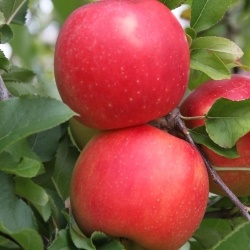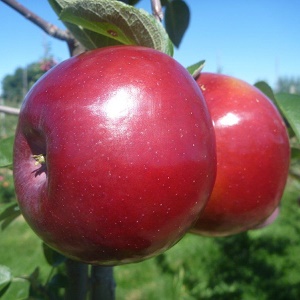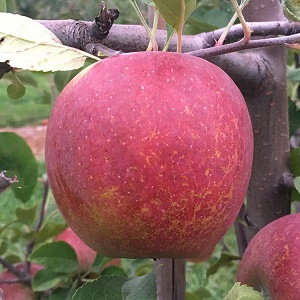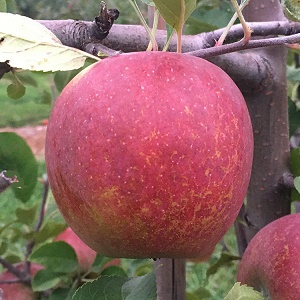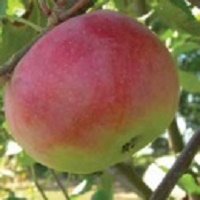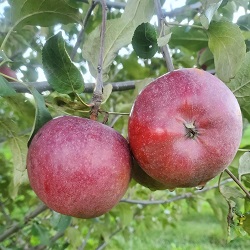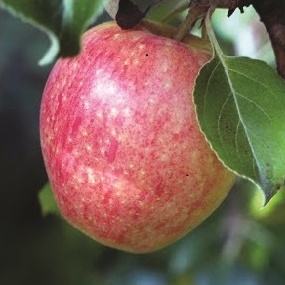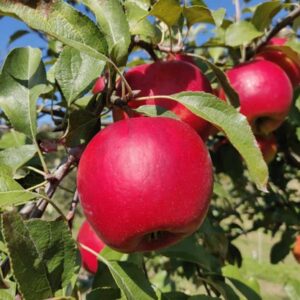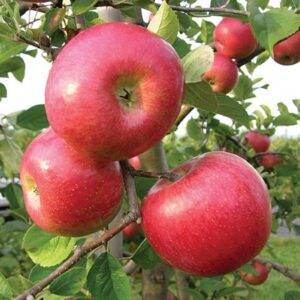Apple : RUBYRUSH (NJ150 cv.) Small Semi-Dwarf (G935)
$49.95
The next generation of scab-resistant apples has arrived with this exciting new release from New Jersey research program. Crossing GoldRush with Enterprise yielded some predictable outcomes with off-the -charts disease resistance across the board, but working with Mother Nature always unfolds with some unanticipated results. In this case RubyRush™ has an earlier ripening date than either parent, which makes it more suitable for shorter season areas. This large, extremely attractive, bright red apple looks like a winner for organic or U-pick operations. The fruit is juicy and aromatic with a desirable crisp texture. Flavour compares favourably with Enterprise-somewhat sweeter and more complex, while storage life is slightly shorter at 3-4 months.
NEEDS A POLLENIZER | ZONE 4 | HARVEST : EARLY OCT.
Rootstocks
G41 Dwarf
G935 Small Semi-Dwarf
G969 Small Semi-Dwarf
G30 Semi-Dwarf
G890 Semi-Dwarf
Pollenator definitions
NEEDS A POLLENIZER ̶ means another tree of the same type or kind but a different variety must be blooming nearby at the same time.
EXAMPLE A Liberty apple and a Wealthy apple can cross-pollinate. Two trees of the same variety ie: ̶ 2 Wealthy apples, cannot cross pollinate because they are genetically identical.
Other trees are marked as SEMI-FERTILE. These will set fruit without a second tree. However they will often bear more, and sometimes larger fruit if another variety of the same kind of tree is nearby.
You can select 2 different trees of the same kind marked as NEEDS A POLLENIZER or plant one of those along with one SELF-FERTILE or one SEMI-FERTILE. Also consider ripening times ̶ a Goldrush apple might not start blooming before a Pristine is finished.
Other products in this zone
Growing Tips
Besides selecting the most disease resistant varieties, there are
a few simple things to do to have better apples.
- Fertilize under the outer edges of your trees. There are no feeder roots next to the trunk. A well fed tree stays healthier. (Adequate calcium in the soil also helps so that apples keep longer.)
- Pick up fallen fruit and compost, dispose of, or feed to livestock (where possible).
- Rake up leaves in the fall and compost them away from the orchard.
- Prune trees to encourage light and air to reach the inside of the tree.
- Provide bird nesting sites near your orchard. A variety of orchard companion type plants will attract native pollinator insects and also encourage birds to come and eat insect pests.
